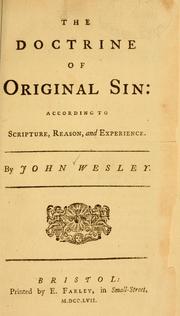In the endless discussions and debates between Calvinism and Wesleyanism, it is quite common for people on both sides to frame the Wesleyan position in terms of human choice. That is, people often say that Calvinists believe God determines who is saved, whereas Wesleyans believe God allows us to “choose” our salvation. However, I don’t think this is a good way of stating the Wesleyan-Arminian position.
When we frame salvation as a “choice” we are leaving too much up to the human person; it is an anthropocentric way of discussing salvation. And it is not the way that Wesleyan theologians primarily frame the issue. You will not find John Wesley, for example, talking about salvation in terms of a human choice. What you will find is John Wesley talking about salvation being granted to all who repent and have faith in Christ; but repentance and faith are always framed as a response to God’s gracious calling and drawing of the sinner to himself. It is not that there is no choice involved at all, but that the word “choice” doesn’t begin to do justice to what takes place in new birth and justification. Faith is primarily a response to God’s prior, gracious action, and the response is to submit and surrender to the Lordship of Christ, which is to confess our own utter sinfulness and helplessness, and accept that our salvation is found in Christ alone. It’s not that we have the power in and of ourselves to “choose God.” Rather, since Wesleyans believe grace is resistible, we have a “negative” power to resist God’s work in our lives, but a positive response is better discussed as a “yielding” to grace, rather than a “choice” of faith.
In that case, there is more common ground between Calvinists and Wesleyans here than is often presupposed. Both sides teach that people come to faith by God’s gracious work; Calvinists teach that it is God’s grace that brings us to faith and that it always does so effectively for those whom God has chosen; Wesleyans say God’s grace brings us to faith, only that such grace is actively working in all, and that it is resistible. As Wesley states it in his sermon “Salvation by Faith,” §III.3, “That ye believe, is one instance of his grace; that, believing, ye are saved, another.” Again, I don’t think the language of “choice” does justice to this view of salvation.
The same could be said of framing the Wesleyan position around “free will.” When we say “free will” most people assume we are talking about an innate, “natural” human freedom to “choose salvation.” Wesley did not believe that fallen humans were free to respond to God in faith without the working of divine grace. The reason to point this out is because it is a point on which Wesleyans and Calvinists agree. The difference, again, is that Calvinists believe salvation by grace is only available to the elect, who are irresistibly drawn to faith, whereas Wesleyans believe prevenient grace is working in all to draw them to Christ, providing a measure of freedom (not total freedom of the will) sufficient to enable a response to God’s offer of salvation. Grace is “free in all” and “free for all” from a Wesleyan viewpoint, but it is always resistible. So, if Wesleyans want to talk about human freedom, I think it’s best to emphasize that we are “freed by grace” to respond, rather than to assert that we have free will.
It may seem like I’m splitting hairs there, but these distinctions are important, because the way the debate is often framed on the popular level exaggerates the differences and obscures the common ground. I should also note that my own perspective is one that has been deeply shaped by engagement with other Christian traditions; so even though I am a Wesleyan, I am trying to state the Wesleyan position in a way which is responsive to the critiques of Reformed theologians (even though I also happen to believe what I am saying accords very well with what John Wesley himself taught).


 Re: Calvinism and total depravity – there are some differences, to be sure. Some Wesleyans don’t use the term “total depravity,” though I think it can be applied to Wesley’s view. My main point is that Wesley agrees with the Reformed tradition that unregenerate humanity is completely helpless and unable to save themselves. Without the grace of God we can only “add sin to sin.” In our own power, we are not capable of not sinning. Wesley is quite clear on these matters.
Re: Calvinism and total depravity – there are some differences, to be sure. Some Wesleyans don’t use the term “total depravity,” though I think it can be applied to Wesley’s view. My main point is that Wesley agrees with the Reformed tradition that unregenerate humanity is completely helpless and unable to save themselves. Without the grace of God we can only “add sin to sin.” In our own power, we are not capable of not sinning. Wesley is quite clear on these matters.




